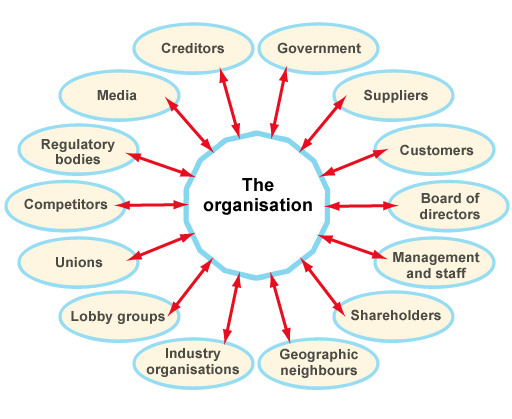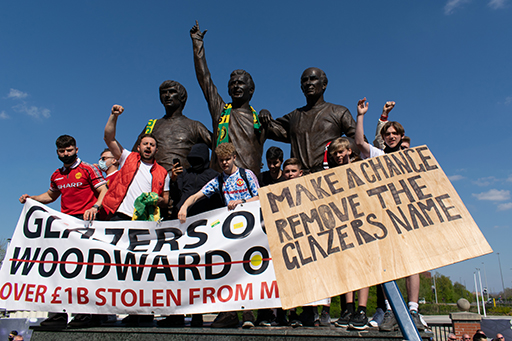3.1 Stakeholders in the business of football
As you saw in John Cove’s fascinating analysis there are a range of internal and external elements that make up a club, no matter how that club is configured. Football clubs have complex interactions with their communities and society more generally. This makes a football club both a supplier to wider society and dependent upon it – and, like all forms of interdependence, this provides benefits, but also imposes obligations on both parties. So a football club, like other businesses, has a range of people and groups who have an interest in the club and the way it is run. These groups of people can be referred to as its stakeholders.
The extract below explores this concept in more depth. As you read consider the stakeholders that might be critical to a football club.
Stakeholders
Stakeholders are people or groups who have a legitimate interest in the activities of businesses and other organisations in their society. Employees, customers and shareholders are all examples of stakeholders. Figure 6 summarises some of the potential stakeholders that might affect a business.
In the private sector, stakeholders include the owners, employees and customers. In the voluntary sector, they include funders, sponsors and donors. In the public sector they include the general public in their capacity as citizens (through elected representatives), as taxpayers (funders) and as beneficiaries of public services (customers).
There are four important points to bear in mind about the stakeholders of a business:
- All businesses have internal and external stakeholders.
- Different stakeholders have different interests, and these interests may be in conflict.
- The culture, structure and control systems within a business will determine how these conflicts, or trade-offs, are resolved.
- Some stakeholder interests are protected by law, but not all.
The quote below from John Cove illustrates how these important features impact upon the football business:
For my club MK Dons there are clearly a number of both internal and external stakeholders. These include those employed in all areas of the business, the fans, the owner and even the other clubs we compete with.
They all have differing interests – most people will be aware of the one obvious area in most clubs between the interests of say fans, who want their team to be successful no matter what and the owner who needs to achieve financial stability. Like any business we have to balance these interests appropriately.
The culture, structure and control systems within the business determine how these conflicts, or trade-offs, are resolved on a day-to-day basis.
Why do stakeholders matter?
It is important to explore the concept of stakeholders for two reasons. Firstly, it helps us understand that stakeholder groups have different interests, and secondly, it helps us understand the relationship between businesses and their external environments.
Because these ‘individuals, groups and other organizations … have interests (their stake) in the activities and outcomes of the organization’ (Hatch, 1997, p. 121) they are highly influential in their running.


